Introduction
With the country’s aging population comes a reality for many family members: the role of caregiver, providing a range of often complex and time-consuming supports to a relative, friend, or neighbor. Family caregivers are an essential component of the country’s health care system, providing about $470 billion in unpaid health care services. To better support family caregivers, Congress passed the Recognize, Assist, Include, Support, and Engage (RAISE) Family Caregivers Act in 2018, which established the Family Caregiving Advisory Council that is creating the country’s first national Family Caregiver Strategy. States are very interested in family caregiving strategies, especially during the pandemic, which brought to the forefront the critical role of family caregivers.
To support states interested in developing policy and practices to support family caregivers, NASHP launched a State Policy Institute on Family Caregiving that provided technical assistance to states in a learning lab model, including opportunities to convene monthly as a group and learn from other states’ approaches. The policy institute content was developed in concert with the RAISE Family Caregivers Act and informed the development of the national strategy. Convening from March 2021 to March 2022 (with two states extending through June 2022), the six states accomplished the following:
- Connecticut organized listening sessions that brought together organizations that included dual special needs plans (D-SNP), Area Agencies on Aging (AAA), and state aging and disability agencies to collaborate and share data via the states health information exchange (HIE).
- Delaware conducted caregiver focus groups, with plans to publish a report and use data from the focus groups to evaluate and expand supports.
- Maryland developed outreach materials, including videos highlighting caregiver stories and resources, and adopted a new logo for its caregiver commission.
- Illinois expanded the use of a family caregiver assessment to four more AAAs, covering providers at 12 of the 13 regions in the state, and developed a caregiver brochure.
- New York completed the first year of a family caregiver assessment pilot study and administered a statewide survey to employed caregivers.
- Utah funded dementia training through grant money built into the Department of Aging and Adult Services budget, for AAAs for training expenses and training individuals to be qualified to provide dementia care training.
State Strategies and Emerging Innovations
Cross-Agency and Partner Collaborations
“You can’t have debates or conversations about health reform, or long-term care reform, or social determinants without including caregivers. Often that conversation happens in the health care and the aging realm. Our goal was to …. pull in the private sector and many other systems that may not know that this matters to them.”
—State official in New York
Caregiving affects all of society, regardless of age, race, ethnicity, or geography. Caregiving spans housing, food security, physical and mental health needs, transportation, employment support, and financial assistance and planning, making this work too broad to fit neatly within the scope of one state department. Reflecting the need for a crosscutting approach, Institute teams were all comprised of administrators from different state departments, while five of six states included one or more private partners in academia, direct service, and/or advocacy.
All institute states engaged multiple state agencies, and several of the state teams also included other partners such as university researchers and advocates such as AARP and Easter Seals. To participate in the Institute, all state teams included state policymakers from Medicaid as well as aging and disability.
| State | State Agencies Involved | Non-state Organizations Involved |
| Connecticut | Department of Social Services, Department on Aging | University of Connecticut Center on Aging |
| Delaware | Department of Health and Social Services, Division of Services for Aging and Adults with Physical Disabilities, Delaware Division of Medicaid and Medical Assistance | Easterseals Delaware & Maryland’s Eastern Shore, AARP Delaware |
| Illinois | Department on Aging, Department of Healthcare and Family Services | AgeGuide Northeastern Illinois, AgeOptions |
| Maryland | Department of Health, Department of Disabilities, Department of Aging, Department of Human Services | Easterseals DC MD VA |
| New York | Office for the Aging, Department of Health, Department of Labor | |
| Utah | Department of Human Services, Department of Health | University of Utah, Alzheimer’s Association |
Family Caregiver Services and Supports
“We were able to stand up [family caregiver supports] in Medicaid under ARPA and have them sustained [on an] ongoing [basis].”
—State official in Connecticut
- New York made specialized caregiver training videos available to all New Yorkers free of charge via Trualta, a private company that offers training to family caregivers via a proprietary online platform. The state used feedback from its working caregivers survey to identify online self-paced videos as an effective method of delivering training.
- Connecticut used new funding from the American Rescue Plan Act (ARPA), in particular the 10 percent Federal Medical Assistance Percentage (FMAP) increase, to expand support for family caregivers by embedding evidence-based supports, assistive technologies, and respite care. Through the state’s 1915 (c) ] Medicaid waivers, beneficiaries have access to family caregiver supports, such as caregiver training, assistive technologies, and respite care. Caregiver supports were also made available for Medicare Savings Program (MSP) participants, who are non-Medicaid eligible, which began in June 2022. MSP participant support and family caregiver support will be sustained through incorporating these supports into the state’s Medicaid budget (for Medicaid participants) and state general revenue (for MSP participants).
- Utah trained 18 dementia care trainers, which expanded dementia care in the state, especially in rural areas, through grant money from the Department of Aging and Adult Services.
Outreach
“When we first developed our goals, we went with a lot of assumptions, and then as we started talking about them, we realized … we should ask the people that we are looking to improve services for what they need.”
—State official in Delaware

Three states focused on outreach to caregivers via the internet, AAAs, and focus groups. Outreach helps a state and its caregivers in many ways, such as helping caregivers identify available supports and helping those who do not self-identify realize they are eligible for certain services. Outreach can also help a state learn more about the characteristics and needs of its caregiving population, allowing the state to better tailor its services to the needs of its caregivers. Maryland and Illinois chose to leverage existing structures to disseminate information about caregiver services, while Delaware initiated a new campaign to connect with and learn about caregivers.
- Maryland developed a series of videos on resources and supports available through its state agencies and its Technology Assistance Program. It also released a caregiver outreach video highlighting a family’s caregiving journey. The video was developed as part of Maryland’s Commission on Caregiving initiative, which was established in 2001 through legislation. The Commission on Caregiving convenes an appointed council that includes family caregivers and members from state agencies, service providers, and advocacy groups to advocate for caregivers and develop caregiver policy recommendations.
- Delaware convened focus groups of diverse caregivers to better understand what supports the state’s family caregivers needed. Delaware plans to create a report with data collected from the caregiver focus groups. This report is part of Delaware’s larger work in developing a caregiver action network, bringing together state agencies, caregivers, and community organizations to refine and develop caregiver supports.
- Illinois created a brochure on available caregiver resources for AAAs to customize and distribute. This approach involved facilitating resource dissemination to caregivers via local providers. Illinois drew inspiration from other state brochures and took advantage of its relationship with the state’s AAAs to provide this resource.
Assessing Family Caregivers for Their Own Needs
“We created a caregiver brochure that really allows anyone across the state … to share with caregivers of older adults and say, ‘Hey, there is support here for you.'”
—State official in Illinois
Three states made caregiver assessments a priority. Assessing caregiver needs, which can be conducted through a variety of tools and programs, can help a state match caregivers to appropriate services, provide a benchmark by which to assess changes, and gather data that help state administrators tailor services to the needs of its caregivers.
- Connecticut created its own family caregiver assessment that will be incorporated into future delivery of Medicaid services as part of the states universal assessment.
- Illinois expanded support to AAAs to implement Tailored Caregiver Assessment and Referral (TCARE) — a commercially developed, evidence-based tool to assess family caregiver needs — that has been used by multiple states.
- New York piloted a program to evaluate potential use of TCARE throughout the state. Preliminary data suggested that assessed caregivers reported reductions in depression.
New York: Outreach to Employers and Employed Caregivers
New York released a survey to gather information about the caregiving responsibilities and experiences of caregivers who are employed. New York worked with state-level, county-level, and private sector employers and utilized partnerships with departments and associations to share this survey with as many employees in the state as possible. This far-reaching approach allowed the state to gather a wide array of data on the challenges, needs, and preferences of working caregivers in different sectors and fields. These data will help New York understand what services need to be made available or more accessible to caregivers. Feedback from the survey has already informed New York’s initiative to provide training videos free of charge via Trualta, as these videos allow caregivers to receive training on their own time.
New York also conducts outreach to employers to raise interest and capacity for supporting caregivers. The New York State Office for the Aging and Department of Labor publishes a Caregiver Resource Guide for Businesses, updated annually, that provides a rationale for employers to support caregivers, as well as an overview of state, federal, and private resources for caregivers.
Conclusion
States’ achievements throughout the Institute informed NASHP’s RAISE Act State Policy Roadmap for Family Caregivers, which provides a roadmap for state officials to better understand the state policy landscape for supporting family caregivers of older adults and to identify opportunities for innovation in their own states. More information about the RAISE Act Roadmap and other NASHP products for state policymakers on family caregiving policy can be found at NASHP’s RAISE Act Family Caregiver Resource and Dissemination Center.
Appendix: Institute State Achievements
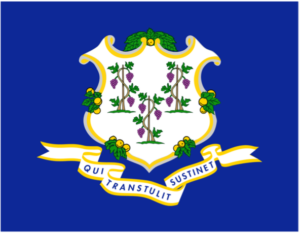
Connecticut
Connecticut’s goals for the Institute were to improve coordination between caregiver resources and supports across state and local agencies, as well as D-SNPs, and to increase timely access to family caregiver information and services. Connecticut’s policy approaches included organizing two virtual roundtables with D-SNPs, the Connecticut Department of Social Services, the Department of Aging and Disability Services, the Connecticut Paid Leave Authority, and AAAs in the state. Through these roundtables, Connecticut developed working agreements with D-SNPs around family caregiver supports. A key challenge identified in the roundtables was data sharing. Connecticut addressed this challenge by requiring D-SNPs to enroll in the state’s health information exchange (HIE). Connecticut also incorporated a value-based system into its HIE to include member goals, including goals related to caregiving. Connecticut was also able to use ARPA 10 percent FMAP increase funding to build and sustain Medicaid coverage of family caregiver supports. All of Connecticut’s Medicaid 1915(c) waivers will now provide coverage of family caregiver supports, such as assistive technologies and respite care. Caregiver supports were also made available for Medicare Savings Program participants, who are non-Medicaid eligible, which began in June 2022, through state general revenue. Connecticut also has future plans to expand Medicaid coverage for family caregiver assessment and to build future connections with the Paid Leave Authority.
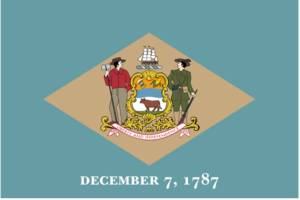 Delaware
Delaware
Delaware’s work through the Institute involved contracting with Wilder Research — a nonprofit, independent research unit within the Amherst H. Wilder Foundation — to convene diverse caregiver focus groups to better understand their needs. These focus groups included LGBTQ caregivers, male caregivers, Asian American and Pacific Islander caregivers, rural caregivers, and caregivers from communities of color. Through the focus groups, Delaware learned about three main themes that affected caregivers in the state: the financial impacts of caregiving, the need to more easily be able to find information, and the need to be able to find the right services. Caregivers also highlighted issues around training aides for special caregiving conditions such as dementia.
Delaware’s next steps include:
- Developing a caregiver campaign to help increase awareness of the concept of caregiving and help people to self-identify as a caregiver
- Hiring a dementia and caregiver coordinator within the Department of Health and Human Services
- Continuing training of case managers at the Delaware aging and disability resource center on caregiver supports
- Considering recommendations from Delaware’s Aging in Place Working Group, a body comprised of legislators, state health officials, members of advocacy organizations, and members of the public collaborating to make policy recommendations that promote aging in place, and considering how these recommendations can overlap with the focus groups’ feedback
- With the Medicaid agency, examining options for incorporating Medicaid coverage of caregiving supports as part of the state’s ARPA home and community-based services plan
Delaware is recruiting for the Delaware Action Network for Caregivers, incorporating nontraditional partners. When finalized, the Delaware Action Network for Caregivers will focus on the advocacy and policy goals for family caregivers in Delaware and will explore findings in the focus group report. The Division of Medicaid and Medical Assistance plans to use the focus group report and recommendations to better identify how existing policy and supports assist caregivers and what supports should be added.
In partnership with the Administration for Community Living’s National Center on Advancing Person-Centered Practices and Systems, Delaware also plans to examine how to ensure equity, inclusion, and cultural competencies are incorporated into programs, services, and systems that impact family caregivers. Delaware will use the focus group report to examine how National Family Caregiver Support Program (NFCSP) funding is currently used and ways to use funding more efficiently.
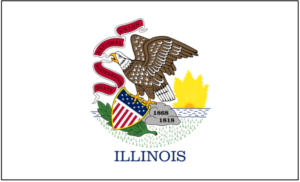 Illinois
Illinois
Illinois entered the Institute with the primary goal of expanding the use of TCARE, a private, proprietary caregiver assessment tool, to all interested AAAs in the state. During the Institute, the Illinois team facilitated two discussions with AAAs, allowing those that have implemented TCARE to share information with those that had not. Illinois used these discussions to better understand AAAs’ interest and concerns about adopting TCARE, finding that along with license costs, administrative barriers posed significant challenges to AAAs in adopting TCARE. As a result of these discussions, Illinois awarded funding and administrative support to four AAAs to purchase TCARE licenses and begin caregiver assessments. Illinois intends to use the data from caregiver assessments to shape programming in the future.
Illinois has also created brochures, primarily used by AAAs, that show caregivers the available supports and assessments offered in the state. These brochures can be customized for each AAA and have been translated into additional languages. Illinois created the brochure with guidance from NASHP, which provided examples from other states. The brochures will help caregivers across the state utilize services.
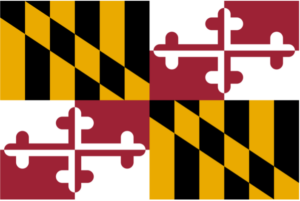 Maryland
Maryland
Maryland’s work in the Institute focused on promoting currently available resources and raising awareness through outreach and promotional content. Maryland developed videos highlighting caregiver resources and supports from multiple agencies and a caregiver awareness video highlighting a caregiver story. Maryland also collaborated with the assistive technology program to develop three webinars to support caregivers, create fact sheets to accompany the webinars, and purchase assistive technology equipment for the state’s loan library.
The state’s Developmental Disabilities Administration (DDA) leads the Community of Practice for Supporting Families. This leadership team formed a subcommittee to focus on aging caregivers of adults with intellectual and developmental disabilities (I/DD), and is discussing the possibility of surveying aging caregivers across the state to understand their unique challenges. DDA recently partnered with Maryland’s Department of Aging (DOA) to identify previously unknown-to-the-administration aging caregivers, exchange data, and provide training to the AAAs on DDA’s services.
Maryland’s next steps include disseminating the videos with four sister agencies, disseminating revised plain-language fact sheets on 11 Medicaid waivers and state plan options, and continuing to work with DOA to identify and support I/DD adults and their aging caregivers. Maryland is in the process of developing a survey with population-specific questions to gather data about caregiver prevalence and needs and to triage survey respondents to relevant resources in real time.
Maryland’s work is supported by the Maryland Commission on Caregiving, a commission created by law with members appointed by the governor. The Commission consists of a group of family caregivers, experts, advocates, and legislators supported by the Maryland Department of Human Services in studying caregiver supports and assisting the state in implementing caregiver policies and programs. The Caregiver Commission webpage will be updated to reflect the resources developed through participation in the Institute.
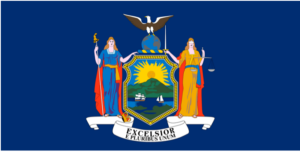 New York
New York
New York’s Institute goals included providing better support to family caregivers in the workplace and piloting family caregiver assessments. The New York team launched a survey to employed family caregivers in the state. The survey was shared widely with employers throughout the state because of cooperation with industry organizations, state officials, and private partners. The survey received valuable data, and Greg Olsen, the acting director of the state office for the aging, presented the team’s work before the RAISE Family Caregiving Advisory Council. Speaking before the RAISE Council, he noted that this initiative itself did not cost the state any money, only effort, and therefore could be replicated by any state committed to supporting family caregivers. New York hopes to use this data to understand what services are lacking and what steps the state could take to increase utilization of caregiver supports.
Additionally, New York piloted TCARE, a proprietary family caregiver assessment. This pilot program assessed 101 caregivers and showed promising results around lower caregiver depression. State officials decided to continue the pilot for another year due to COVID-19-related challenges to collecting data. New York also made training videos available to caregivers free of charge through Trualta, a private platform that offers caregiving training for family caregivers. New York will continue to work on other caregiver supports, including exploring ways to include a caregiver training module among the state’s mandatory employment trainings that would help state employees self-identify as caregivers.
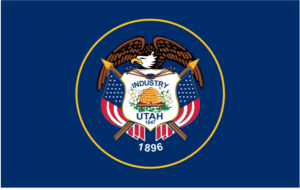 Utah
Utah
The Utah team used the Institute as an opportunity to bolster supports for caregivers of individuals with dementia and to enhance Medicaid’s capacity to support caregivers. Utah created a program funded by the Utah Legislature and grant funding through the Department of Aging and Adult Services to reimburse AAAs for dementia training efforts, supporting trainings in both English and Spanish. Utah also used the grant money to train 18 new dementia trainers and purchase materials for state dementia programming, which has been especially beneficial to rural areas.
Utah’s approach has emphasized cross-agency and cross-sector collaboration. The Utah Department of Human Services and Utah Medicaid have worked together to assess what staffing considerations Medicaid needed to better serve family caregivers. Shortly before the start of the Institute, the Utah Legislature passed legislation allowing spousal caregivers to be paid by Medicaid for providing extraordinary care. The Utah team discussed resources and trainings that would help the state implement this law.
Utah also put an emphasis on supporting tribal communities and met with the Utah Indian Health Advisory Board to obtain permission to provide dementia training to tribal communities. Though those plans are currently delayed due to the COVID-19 pandemic, Utah will proceed with these plans when conditions permit.
Acknowledgements: We thank the state officials in the NASHP State Medicaid Policy Institute on Family Caregiving for their participation in the institute.
The NASHP State Medicaid Policy Institute on Family Caregiving was supported by The John A. Hartford Foundation, along with the RRF Foundation for Aging and the Ralph C. Wilson, Jr. Foundation.



